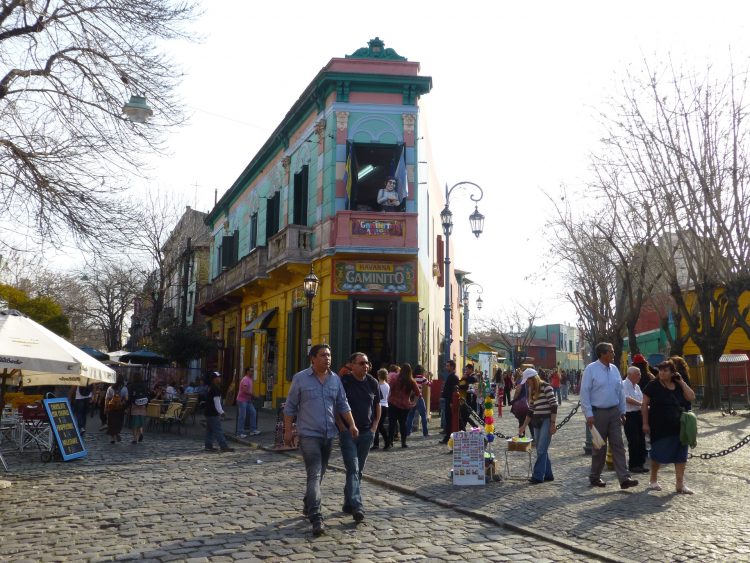The Argentinian Ministry of Employment, the ILO and EUROsociAL+, together with authorities from Chile and Uruguay and with the presence of experts from Europe and Latin America, presented a publication that summarises the webinars held in 2020 and reflected on the current situation of coexisting with COVID-19.

On 13 May, a virtual meeting was held to present the publication of “COVID-19 – How do we prepare for the gradual and selective easing of lockdown?”, a document which is the product of a series of virtual meetings for dialogue and exchange on the measures that countries were adopting in the field of safety and health at work in the face of COVID-19, both at the most critical moment of the crisis and in the face of productive and economic reactivation and the recovery of employment. The publication systematises the national responses shared at these roundtables, as well as a series of reflections on the lessons learnt during the pandemic and the challenges that occupational health and safety will face in the future.
The virtual seminars were organised by the International Labor Organization (ILO), Argentina’s Ministry of Labour, Employment and Social Security, the Superintendency of Occupational Risk of Argentina and the European Union EUROsociAL+ programme.
More than 600 people from Latin American and European countries participated in the webinar programme, which began in June 2020. The topics focused on four economic sectors especially affected by the crisis: construction, transport, domestic work and wholesale markets, the common thread of each encounter being occupational health and safety measures, the role of social dialogue and the sectoral agreements reached.
The 13 May meeting was moderated by Virginia Tedeschi, Southern Cone technician from the EU EUROsociAL programme. At the opening, Fabio Bertranou, director of the ILO Office for the Southern Cone of Latin America, said “one of the lessons learnt in this pandemic is that occupational health and safety must continue being one of the key axes within the plans for recovering from this crisis, and social dialogue, the way by which agreements are reached on this matter.”
Aude Maio-Coliche, European Union ambassador in Argentina, stressed that “the way out of the crisis caused by the pandemic will only be possible with renewed multilateralism, strong alliances and mutually enriching exchanges such as those that occurred in these meetings. We hope that the recommendations and experiences compiled in this publication will serve to preserve health and safety conditions in the workplace, both in Europe and in Latin America.”
Claudio Moroni, the Argentinian Minister of Labour, Employment and Social Security, referred to the importance of international cooperation in managing the pandemic, saying that the main challenge continues to be worker registration to ensure that measures implemented in matters of health and safety at work and access to rights encompass everyone. To do this, he argued, “we must work on a more equitable development model and strengthen multilateral activities with multiple approaches, since sharing differences is essential so that development models can be applied in a fair way.”
Also taking part in the “Health and safety measures at work in times of pandemic” panel were Cristóbal Molina Navarrete, professor of Employment and Social Security Law at the University of Jaén, Spain, and Carmen Bueno, a specialist in Occupational Health and Safety at the ILO Southern Cone. They held an exchange of ideas on the great challenges, priorities and lessons of the pandemic, emphasising the need not to neglect the strict application of preventive measures to prevent workplaces from becoming the scene of new outbreaks. They also stressed the urgency of facing the new consequences associated with the pandemic, such as ergonomic risks and problems affecting the mental health of workers, particularly in the case of remote work, and the relevance of an active role in social dialogue for institutions in the interests of guaranteeing not only safer and healthier environments in the workplace, but also the economy. As Molina Navarrete explained, “without health there is no economy.”
At the close of the encounter, Patricia Soto, superintendent of the Chilean Social Security, stressed the need for dialogue between workers and employers, which must take the form of effective precautions which take care of and guarantee workers’ health. Tomás Teijeiro, Inspector General of Uruguay’s Labour and Social Security also shared the National Council for Occupational Health and Safety and sectoral tripartite commissions’ social dialogue experience existing during this period, underlining the importance of individual responsibility in the framework of the pandemic. Marcelo Domínguez, General Manager of the Superintendency for Labour Risks concluded the meeting by saying that “by exchanging experiences like these, public policies to take care of health and safety at work can be enriched.”



